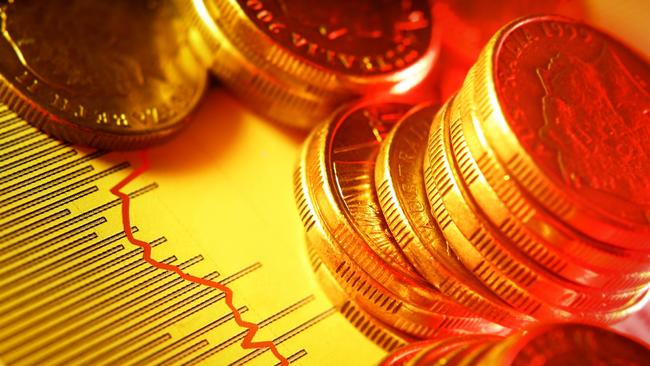Inflation rise: how it helps retirees, governments and investors
The thought of higher inflation and interest rates scares many people, but price rises have many positive impacts.
Rising inflation has an image problem, especially among people who aren’t fond of surging petrol prices, increasing interest rates and other cost-of-living crunches.
And inflation has been the hottest topic in the financial world in recent weeks, as economies around the world bounce back from Covid-19 weakness while supply chain strains and labour shortages push up prices.
Australia’s official annual inflation rate is currently a solid 3 per cent, but many countries are at now 4, 5 and 6 per cent – including the US at 6.2 per cent.
Inflation makes the cash you hold today become less valuable tomorrow, and nobody likes feeling poorer. It also leads to higher interest rates as the Reserve Bank and other central banks try to keep it controlled.
But rising inflation can be a positive trend for a wide range of recipients, as long as it doesn’t get out of control. Here’s why.
GOVERNMENTS
Covid unleashed unprecedented waves of government spending and debt to keep economies from collapsing.
Australian government debt is now heading towards $1 trillion – before the pandemic it was less than $500 billion and the government had plans to wipe it out completely.
One way to reduce the impact of ballooning debt is to inflate your way out of it, and this tactic appeals to governments everywhere.
Just like current cash levels are weakened by future inflation, so are debt levels, which become less of a burden when the value of everything else rises.

INVESTORS
Inflation also works for landlords and other investors with large debts.
We’ve seen this with house prices. While a property loan five years ago might have felt huge and potentially insurmountable, surging home values – and the associated rise in mortgages – make those historical home loan balances much more manageable.
Property investors also benefit from rental income inflation, which gives them more money to repay their loans. For share investors, higher prices push up company revenues and eventually dividends, and research has found that stockmarkets overall generally like solid inflation growth.
Rising inflation will increase interest rates, making many investment loans more expensive – but borrowers who have used recent record low rates to pay extra off their debts will be in a good position going forward.
RETIREES
Many retirees are also investors, but others mainly rely on the age pension and perhaps a little superannuation.
As their cost of living rises, pensions are indexed to inflation and will rise too. And super fund returns should rise over the long term because their investments in profitable companies improve.
Retirees have also been smashed by record low interest rates on cash deposits for many years. Higher inflation will eventually increase their returns on cash in the bank.
And they are much less likely to hold debt and be impacted by higher interest rates on mortgages.
BANKS
Don’t forget the banks themselves, which get more wiggle room when higher inflation leads to higher interest rates.
In normal times banks can make healthy profit margins on both their loans and their deposits. But with the Reserve Bank’s official interest rate currently at 0.1 per cent and many bank deposits at virtually zero, their income sources have been squeezed.
Banks should benefit as long as inflation doesn’t spike too fast and rate rise so quickly that they cause a housing market crash.
I don’t expect a property collapse. Aussies have collectively borrowed so much for their houses that as soon as rate rises start to cause some financial strain, people will stop spending, inflation will weaken, and interest rates will be reduced again.






To join the conversation, please log in. Don't have an account? Register
Join the conversation, you are commenting as Logout